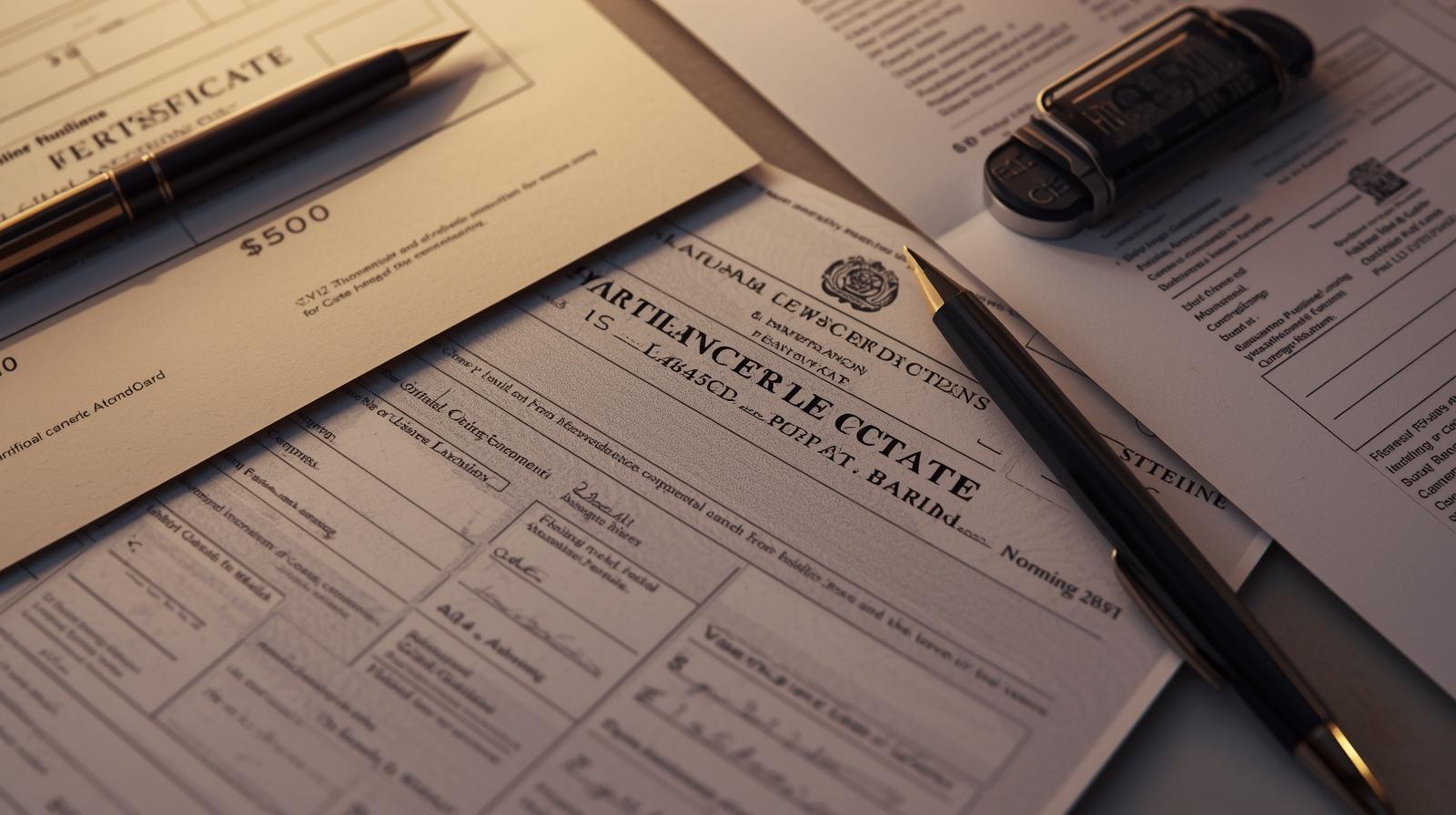Share this article
When someone dies in Iran, one of the most challenging issues for close family members and executors is understanding what happens to the person’s bank accounts, deposits and other financial assets. In this article, the firm MJK Law Firm explains how inherited money and bank accounts are handled under Iranian law, the paperwork you’ll need, the rights of heirs, common pitfalls, and how we assist families with these matters. Whether you are a spouse, child, sibling, or executor of the estate, this guide is designed to walk you through the key steps clearly.
Legal Definitions and Framework
What is “inheritance” under Iranian law?
In Iran, inheritance is governed by the Iranian Civil Code (and related laws), which sets out how a deceased person’s property is distributed among heirs. Important points include:
- Before any distribution can occur, the deceased’s debts must be paid.
- Heirs are categorised by degree (children/spouse first, then parents/siblings, etc.).
- If the deceased left no valid will (or the will covers only part of the estate), the statutory rules apply.
What counts as “bank accounts” and “deposits”?
For the purposes of inheritance, bank accounts, term deposits, savings, and other financial assets of the deceased are part of the “estate” to be distributed, provided they are identifiable and provable. For example: accounts held in Iranian banks, interest accrued, etc. Some tax-law commentary refers to “bank deposits and their interests” as assets of the deceased.
Thus, inheritance involving bank money in Iran must factor in these financial holdings alongside real estate, physical assets, etc.
Key Procedures & Requirements for Releasing Bank Accounts After Death

Step 1: Establishing death and documenting heirs
One heir (or more) must apply to the competent authority (often the local Dispute Resolution Council) for an “inheritance certificate” or probate letter which identifies the heirs and their shares.
Documents typically required: death certificate of the deceased; national identity cards of heirs; birth certificates; marriage certificate (if spouse); any will of the deceased.
Step 2: Inventorying assets and bank accounts
The estate must be identified: what bank accounts did the deceased hold? What deposits, interest, or other financial assets? Also, any liabilities or debts must be recorded, because debts must be paid out of the estate before distribution.
In practice for bank accounts, you’ll need to identify the bank(s), account numbers, balance at the time of death, branch details, and whether the account was joint or individual.
Step 3: Paying debts and funeral costs
Under the Civil Code, the deceased’s debts, the cost of burial/shrouding, and any legacy (up to one-third) must be satisfied before distribution among heirs.
This means if the deceased had outstanding bank loans, credit cards, or other liabilities, those must be settled — potentially through accessing bank accounts or other assets.
Step 4: Determining each heir’s share
Once debts are cleared, the remaining estate (including bank money) is divided among heirs according to the law: shares depend on relationship, gender (in some cases), whether children exist or not, etc. For example, if there are children, each son gets twice as much as each daughter in that category.
If there was a valid will, up to one-third of the estate may be distributed per the will (with the heirs’ consent if more than one-third) — but this must still respect valid heirs’ rights.
Step 5: Transferring or closing bank accounts
Once shares are determined, the bank accounts held by the deceased can be transferred or closed, and the funds distributed to heirs. The bank may require the inheritance certificate, identification of heirs, and proof of debt settlement.
If the account was joint (e.g., with a spouse), there may be simpler procedures, but this depends on bank policy.
In international contexts (foreign heirs), there may be additional complications concerning sanctions and cross-border transfers.
Practical Steps for Families and Executors
- Obtain the death certificate from the registry and gather the deceased’s bank statements, account information, and property titles.
- Apply for the inheritance certificate at the local Dispute Resolution Council in the jurisdiction where the deceased last resided.
- Inventory assets and liabilities: list bank accounts, balances as of death, other assets, and any outstanding debts.
- Settle liabilities promptly — if bank loans or other debts exist, use estate funds to clear them before distribution.
- Calculate heirs’ shares based on law and/or will. Confirm spouses, children, parents, siblings, and their entitlements.
- Request bank to transfer or close account: submit the inheritance certificate + personal IDs + release/consent from heirs. Distribute funds accordingly.
- Keep clear documentation: record each step, signed receipts from heirs for their portion, and maintain transparency in case of dispute.
- If foreign heirs or cross-border transfers: ensure compliance with relevant sanctions or banking rules (for example, if an heir resides outside Iran).
Read more
Common Mistakes and Risks
- Distributing funds before debts are paid: If heirs take bank account proceeds before liabilities are settled, creditors may contest and unwind those transactions.
- Assuming a will overrides heirs’ rights fully: In Iran, a will can generally cover only up to one-third of the estate without heirs’ consent.
- Ignoring bank policy regarding joint accounts: Sometimes, a joint account may be frozen or flagged until proper documentation is submitted.
- Cross-border transfer issues: If an heir abroad tries to receive funds from an Iranian bank, sanctions or banking restrictions may cause blockage or delay.
- Lack of transparency among heirs: Without clear communication and documentation, sibling/spouse disputes are common.
- Not valuing accounts at date of death: For fair division, the balance/time of death should be recorded; otherwise, future interest, withdrawals or disputes may arise.
The MJK Law Firm’s Approach
At MJK Law Firm, we assist families and estate executors with bank-account inheritance matters in Iran by offering:
- Full clearance of debts and obligations of the estate so that bank accounts can be released without creditor risk.
- Preparation and submission of the inheritance certificate application, liaising with the Dispute Resolution Council and courts.
- Verification of bank account information, coordination with banks for releasing/closing accounts and distributing funds to heirs.
- Guidance for heirs abroad or complicated cross-border cases (including sanctions review, international transfers).
- Transparent communication with all heirs, facilitating settlement agreements when required, and helping to avoid disputes.
If your family faces the challenge of dividing inherited bank deposits or accounts in Iran, MJK Law Firm is ready to support you with clear, professional legal guidance that honours your family’s interests and complies with Iranian law.
FAQ
Q 1: Can a bank account in Iran be transferred to heirs without an inheritance certificate?
A: Generally, no. The bank will require proof of legal heirship (inheritance certificate) and settlement of estate debts before releasing funds to heirs.
Q 2: What happens if I live outside Iran but am an heir to a bank account in Iran?
A: You are still entitled to your share under Iranian inheritance law. However, you may face additional hurdles regarding cross-border transfers, sanctions compliance, and coordination with the bank.
Q 3: Can the deceased’s spouse receive the entire bank account money if there are children?
A: No. Under Iranian law, the spouse has a statutory share, but children and other heirs also have rights. The exact share depends on the relationship, the presence of children, etc.
Q 4: Are there taxes on inheriting money (bank accounts) in Iran?
A: Yes, inheritance tax or related obligations may apply. For example, one tax-law note indicates that bank deposits and their interests fall under estate tax calculations.
Q 5: What if the deceased had a will that directs bank money to a non-family member?
A: A will in Iran may direct up to one-third of the estate to beneficiaries beyond heirs (without their consent). Beyond that requires heir consent. The will must also not contradict statutory heir rights.
Call to Action

If you are facing an inheritance issue in Iran — especially one involving bank accounts or deposits — it is important to act promptly and with expert guidance. At MJK Law Firm, we specialise in Iranian estate law and bank-asset release. Contact our team today to schedule a confidential consultation: we can review your documents, assess the bank account situation, and guide you step-by-step toward resolution.
